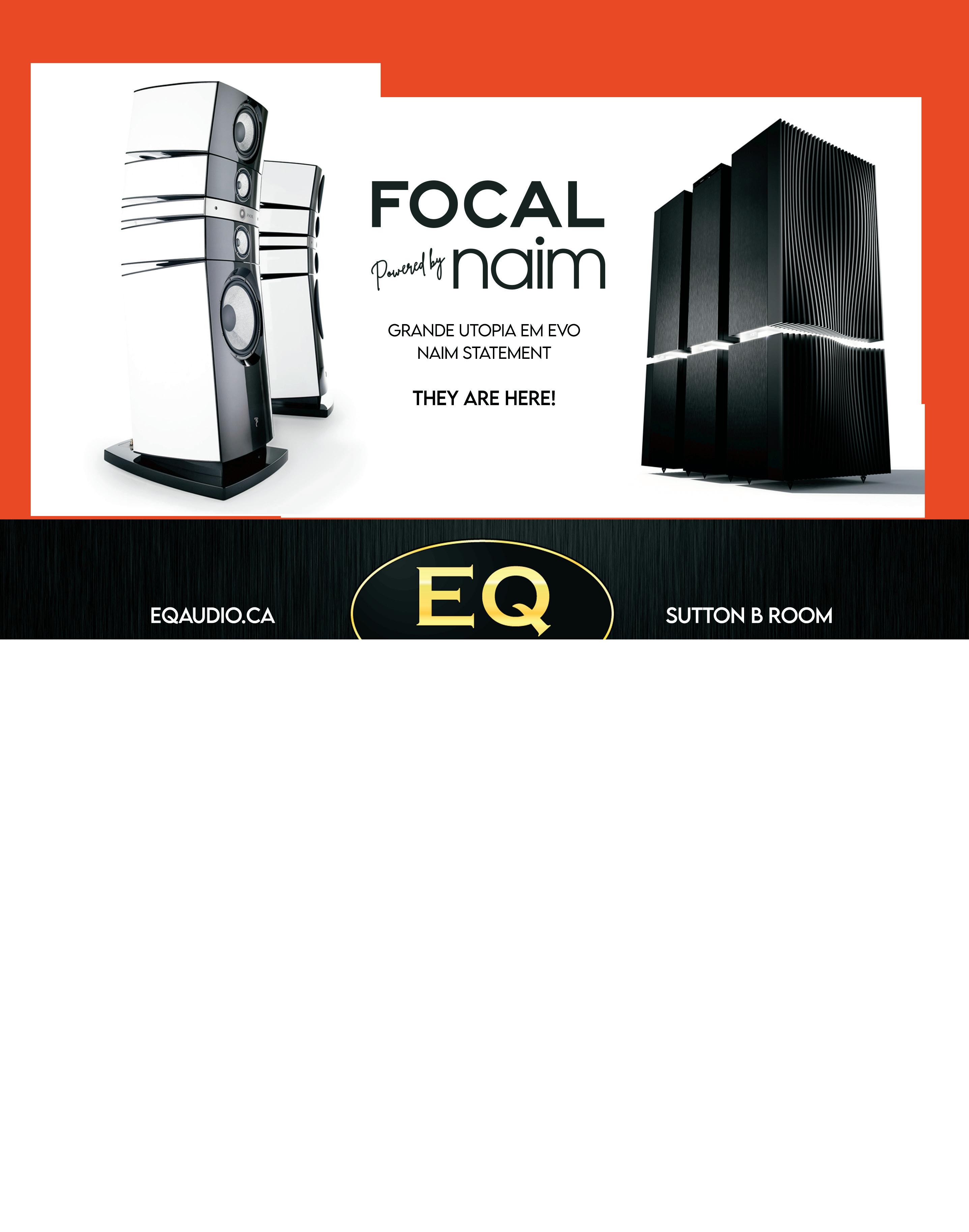





THE NEW IMAGINE SERIES IN ROOM 227!


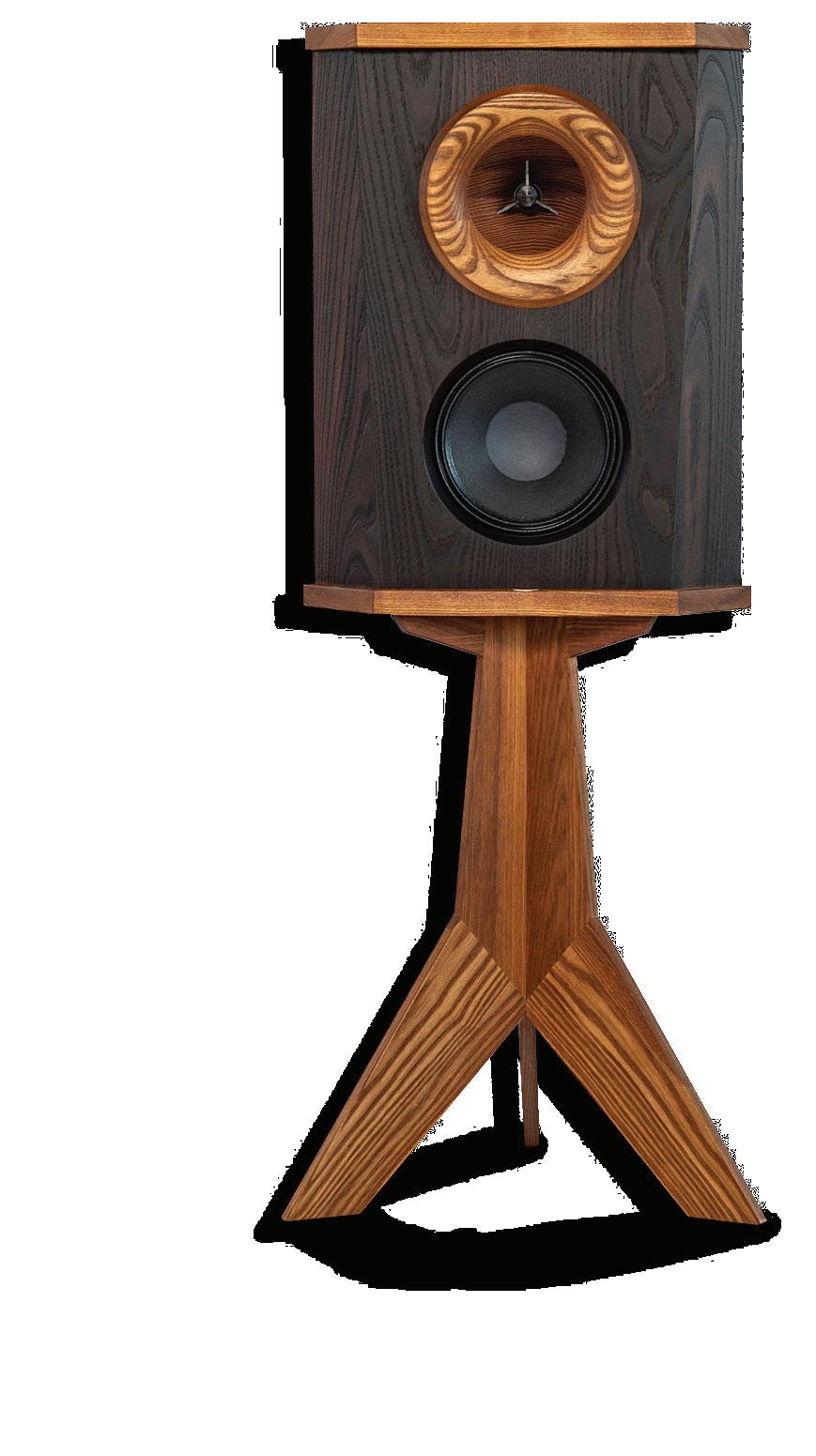
The Toronto Audiofest is not only the holy grail of audio, but also a place where people passionate about music and audio can meet and talk in peace, without having to face the trolls of this virtual world.
Our hobby is our passion, so let's take pride in it, and continue to introduce new music lovers to the benefits of listening to music on a quality audio system, properly set up by industry experts.
Don't forget to register to receive our free PMA magazine, win prizes and enjoy an ice cream.
We hope you enjoy your visit!
Sarah & MichelFriday 11 a.m. – 8 p.m.
Saturday 10 a.m. – 6 p.m.
Sunday 10 a.m. – 5 p.m.
March 24 - 26, 2024
October 18 - 20, 2024

Alsyvox Full Range Ribbon Loudspeaker
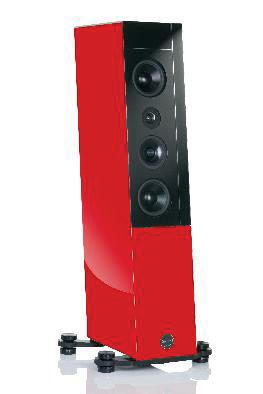
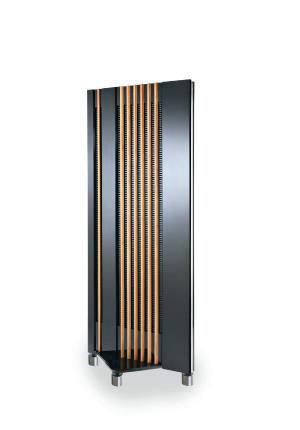
Advance Paris Streamer, Radio, CDP Integrated Amplifier
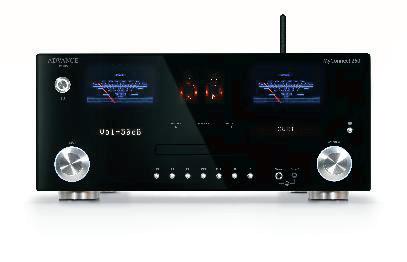
Rekkord Audio Fully Automated Turntable
Audio Physic Loud speaker

TW Acustic Turntable
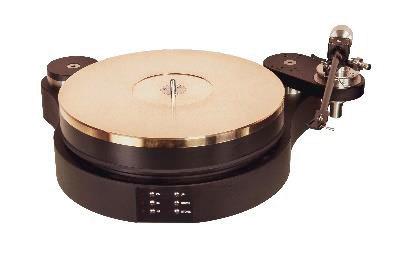
LAB 12 Tube Amplifiers
System 1: Acapella High Cellini , TW Acustic Raven GT, LAB 12 Suono, Melto 2 and PRE1, COS D10 DAC, Cardas Audio cables
System 2: Vinnie Rossi Brama, Audiovector R8, Berkeley Ref 3 DAC, Tech Das AF3P, Acoustic Solid Solid Wood, Modwright PH 9.0, Synergistic Research Galileo SX cables
Gold Note, Odeon Audio, Harbeth, Transrotor, Fezz Audio, CAD, Abyss Headphones
see also floor plans on page 16 and 17
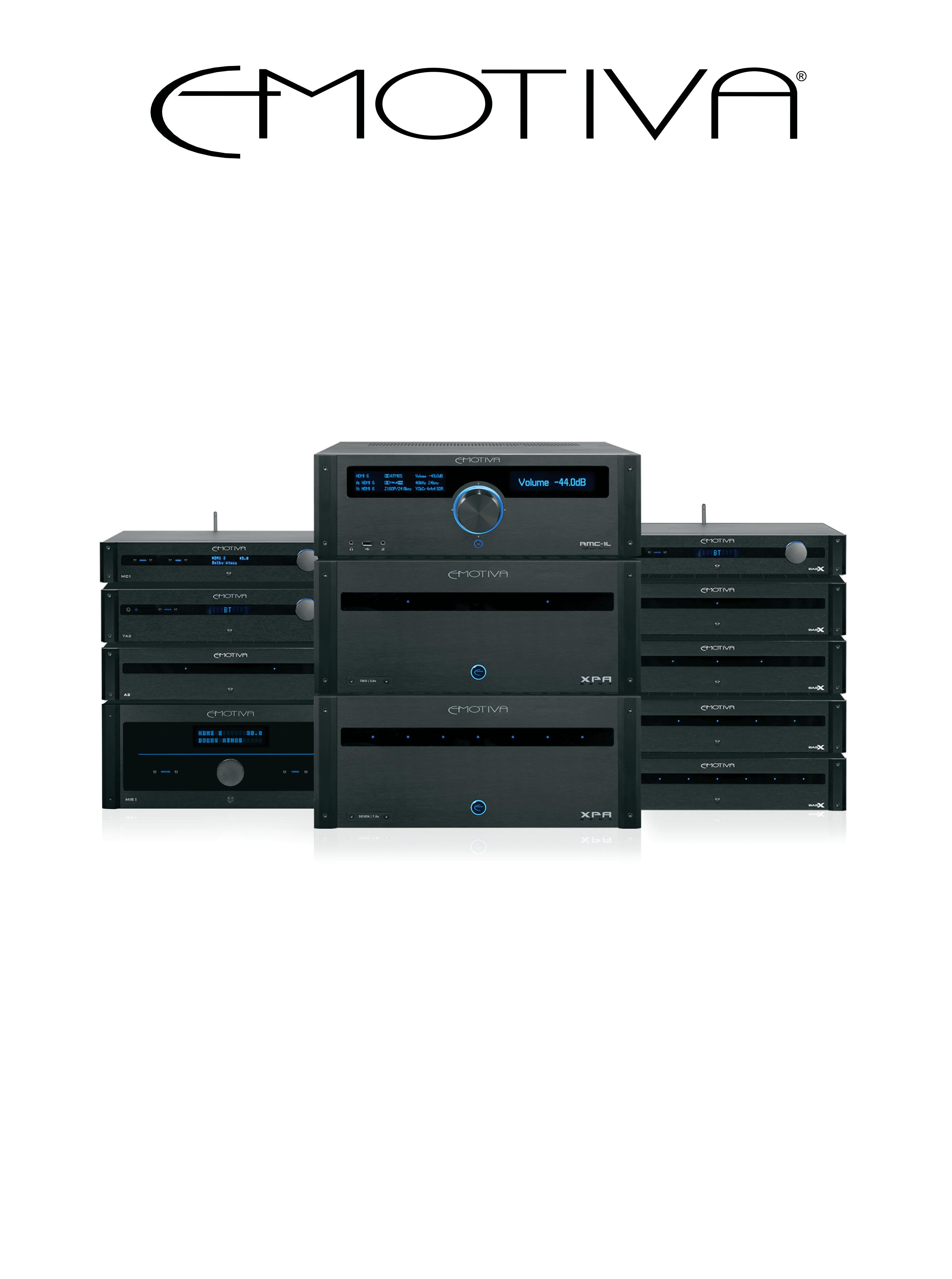


Ask anyone who started a Facebook audiophile group and they will tell you they did it as a labour of love for the audiophile community, so hobbyists could feel free to share their audio experiences and discuss audio gear with like-minded folk in a friendly, nurturing environment. And it was like that, for a while. Until the bullies showed up.
The subject of this interview, Paul, has been a member of one of Quebec’s most popular Facebook audiophile groups since its inception nearly a decade ago. He began as a content provider, and over time took on the roles of site administrator and moderator. He graciously offered to talk to us about what he sees as a pervasive scourge on Facebook audiophile groups, but asked that his real name not be used.
Paul’s group was established by a friend of his, “Dan”, who wanted to replicate the success he was having with his popular Facebook record-collecting group, where LP enthusiasts congregated to chat about LPs and post their jackets, all of it taking place in an environment of mutual respect.

It didn’t go as hoped. Two years after launched it, Dan wanted out. He asked Paul if he’d be interested in taking on a bigger administrative role, which meant more moderating. When Paul accepted, Dan disappeared and hasn’t been heard of since, although Paul suspects the page still belongs to him. So, what happened?

“The bullies started coming,” Paul said to me during our Zoom interview. “They’d pick on members, tell them their gear or opinions were wrong, end of discussion. There was no talking with them. They’d

Perhaps now is a good time to define what the audiophile hobby is. The audiophile hobby is a personal journey of exploration and discovery in sound reproduction. It’s fueled by a sense of curiosity and the desire to hear one’s music in better sound, along as by a love of audio equipment and accessories in general.
It may also be worth mentioning the obvious— that audiophile Facebook groups were created to celebrate the audiophile hobby—hence, the word “audiophile” in the group’s name—not shit on it.
“Before social media,” Paul said. “I used to participate in the online discussion forums that audio magazines set up. Audiophiles would go there to chat with other audiophiles—it was always friendly. People were civil to each other.”
Rewind to the joyous first couple of years after Dan launched his Facebook audiophile group, during which Paul acted as both content provider and site administrator. He wasn’t a moderator yet, because there was nothing to moderate. The atmosphere was convivial. People shared their audio journeys with other members, posted pictures of their gear, tried to offer helpful advice, all without repercussion and done in the fraternal spirit of cooperation.
Then things began to flare up. Disagreements about audio broke out and ended in personal attacks. Dan began to warn people, even discipline some, but the situation escalated. The drop-in-the-bucket that precipitated Dan’s departure was a particularly acrimonious conversation with a member, that ended with Dan being scolded with, “Your mom must be so disappointed in you.”
Soon after that incident, Paul began to moderate the site—to make sure conversations were conducted in a respectful manner. It made him an instant

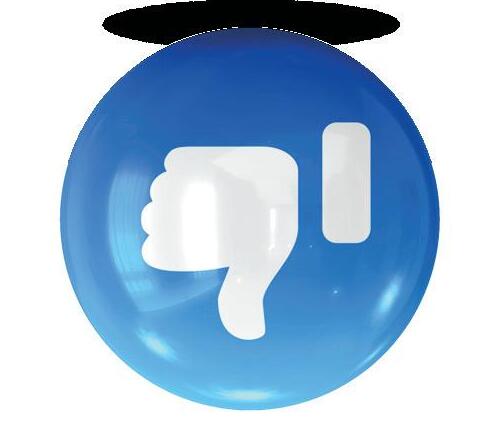
“I eventually decided to stop moderating. I still add content to the site to keep it going, but I’m careful now about what I share.
For one, my posts have become more musicoriented.”
In other words, less audiophile. I asked how he would describe the current state of Facebook audiophile groups overall.
“A disaster,” he said. “Most aren’t constructive anymore. People are reluctant to share. They’re afraid people will gang up on them, call them deluded or idiots. There’s none of those sorts of attacks in vinyl record groups.”
Then why was it happening on audiophile ones?
“Jealousy maybe? A sense of competition? I’m not sure how to analyse it. There are a lot of know-it-alls, people who are so convinced they’re right that they feel justified in meting out justice. They refuse to believe they may not know everything.
“It’s like people who spend 10 minutes listening to a component at an audio show,” he said. “They conclude it didn’t sound good, and they post that on social media. They heard the component for 10 minutes at a hotel in an unfamiliar system. I’m sorry, but they didn’t hear it.”
When I asked why he continued to participate in a group he considered toxic, he looked off to the side of the camera and sighed deeply. “That’s a good question,” he said. “My girlfriend asked me the same thing.” After a few moments of speechlessness, I prodded, “Is it frustrating to be on the site?”
“Not really,” he answered. “I just watch what I post. Things can get out of hand quickly. I recently posted photos of new equipment I’d bought. Then the comments started, “Why did you buy that? There’s a lot better out there for the price.” And it just went downhill from there. So, I try to avoid those situations.”
Scan

Paul explained: “I started getting—I still get—anonymous private messages—some from obviously fake accounts— telling me, ‘You have a big mouth’, or, “You’re no good’. Just hateful messages.

In any colour of your heart’s desire




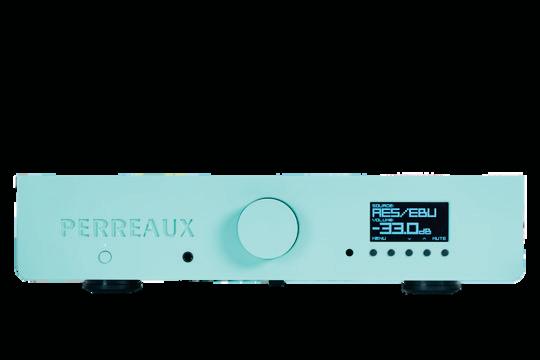




see also floor plans on page 16 and 17
This musical snapshot captures the fusion of Armstrong’s melodious notes with the ageless Egyptian landscape – a moment when music history met ancient history.
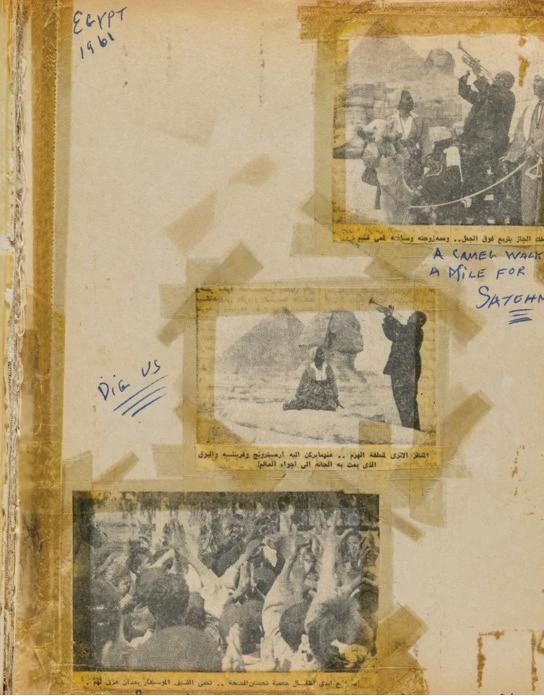
Jazz maestro Louis Armstrong’s music resonated across borders, with his tunes reaching even the ancient sands of Egypt. There, beneath the gaze of the Great Sphinx and Pyramids of Giza, a timeless photograph was taken, capturing Armstrong serenading his wife, Lucille.
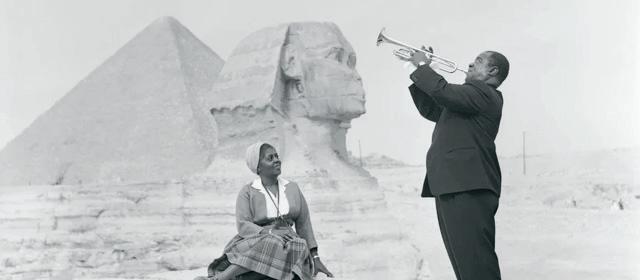
In 2016, The New York Times Store shared this iconic 1961 image marking Armstrong’s death anniversary. Yet, the story behind the photograph, held at the Louis Armstrong House Museum in Corona, Queens, paints a more vivid picture.
As narrated by Ricky Riccardi, the museum’s director of research collections, the photo was a poignant chapter in Armstrong’s State Department-sponsored Africa tour that commenced in October 1960. Amid the tour, tragedy struck when Velma Middleton, one of his vocalists, suffered a stroke in Sierra Leone.
Following the unfortunate loss, Armstrong pressed on, performing in Sudan before his arrival in Egypt.
Preserved in the Armstrongs’ collection are photographs and mementos of their Egyptian journey, including an endearing image named
The next morning, they embarked for Nice, France, concluding the challenging State Department tour. While the famous photograph is claimed by multiple outlets, including the Associated Press and Getty Images, the actual photographer’s identity remained a mystery.
The momentous day of January 28 saw Armstrong at Ambassador Reinhardt’s reception, playing at a Cairo orphanage, and creating iconic images at the Sphinx.
“Lovebirds on the Nile.” Their adventure involved meeting the esteemed archaeologist Kamal el-Mallakh, who led them to the pyramids.
The momentous day of January 28 saw Armstrong at Ambassador Reinhardt’s reception, playing at a Cairo orphanage, and creating iconic images at the Sphinx.
A handwritten note bearing the name “Artin DerBalian” hints at the likely photographer, a claim supported by Lucille’s note stating DerBalian “shot photo of us at Sphinx.”
BY OLIVIER MEUNIER-PLANTE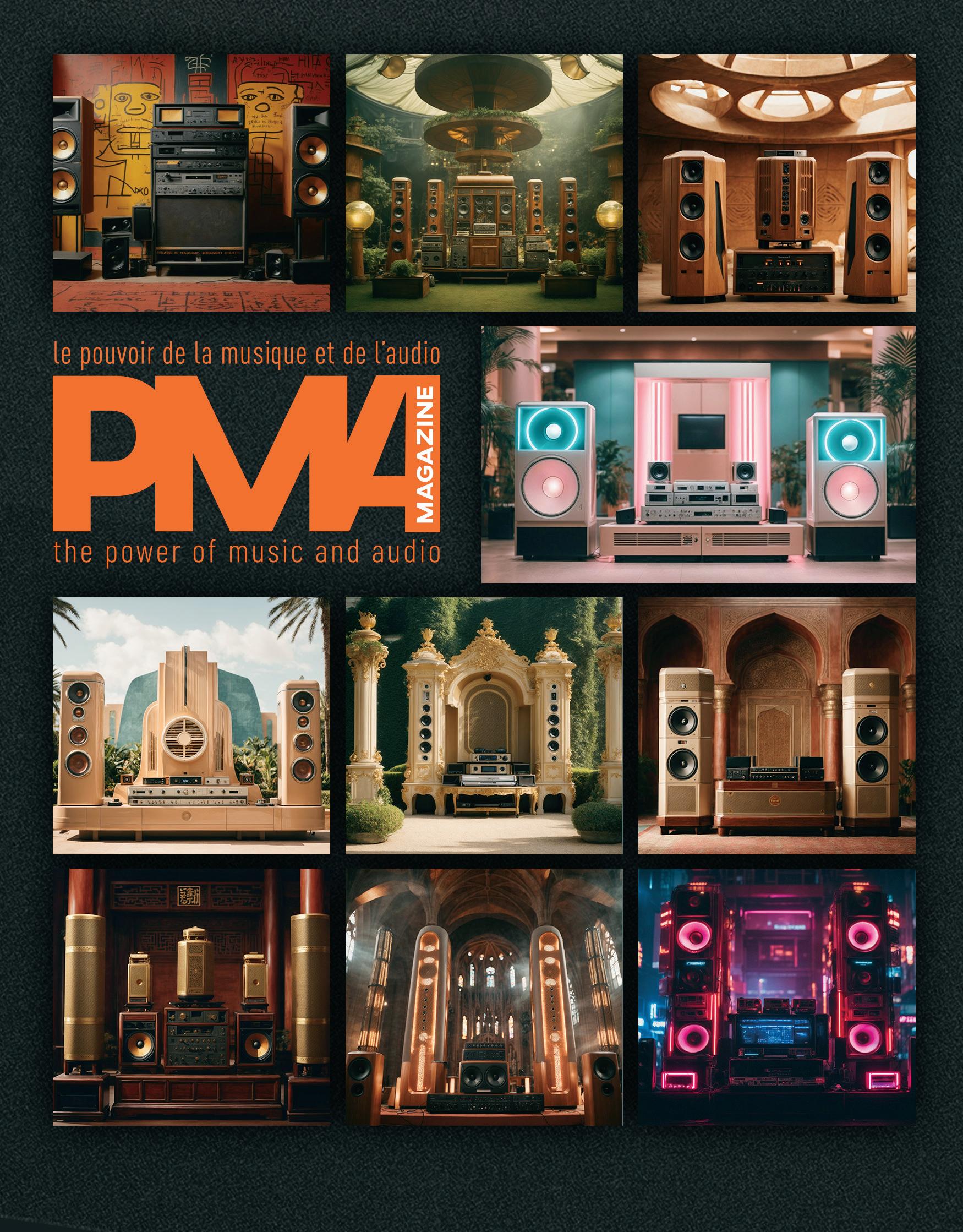
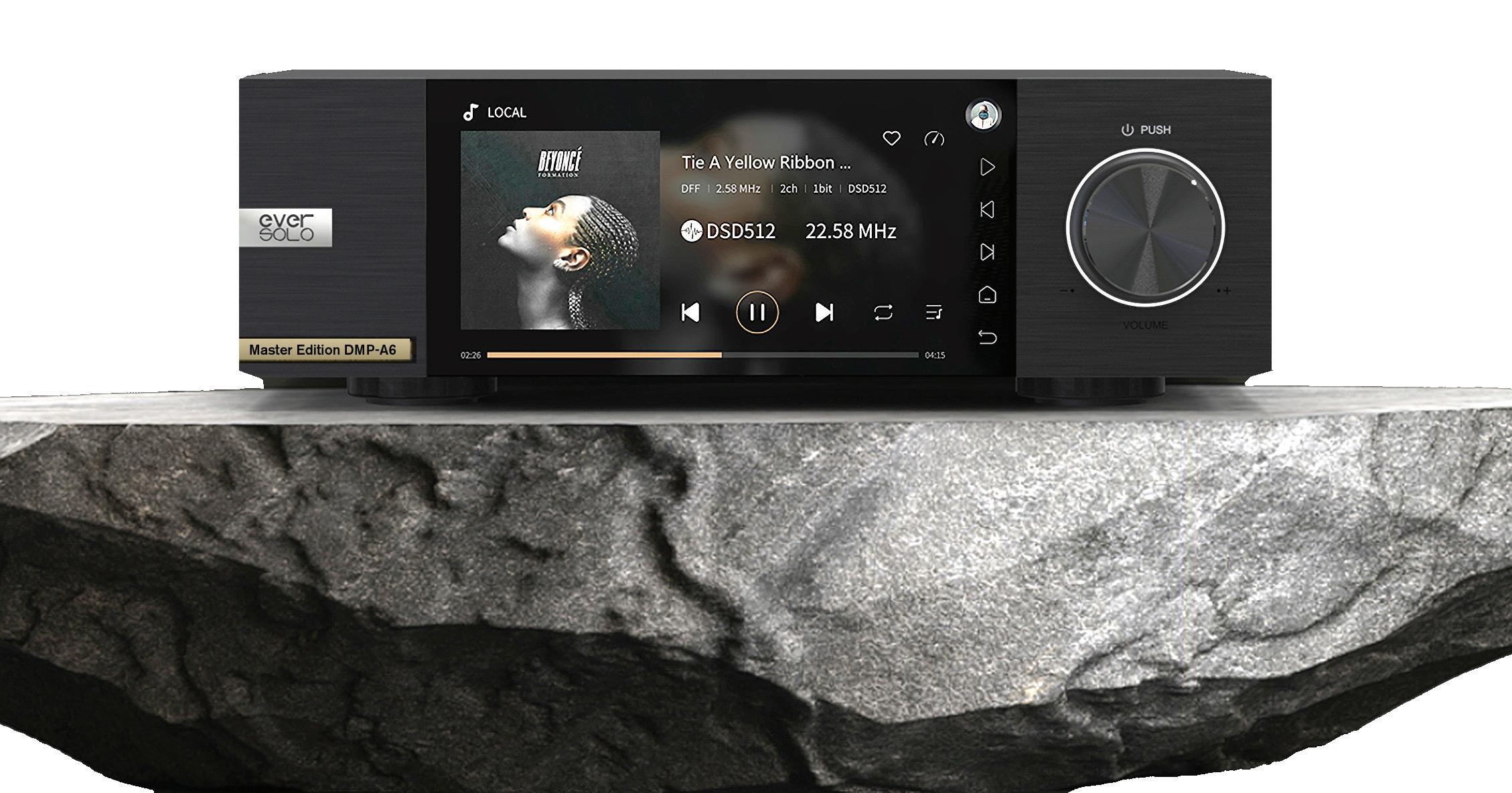

lower level
Balmoral Corby's Audio, Baetis Audio, Saturn Audio Ltd.
Carlyle Wynn Audio
Windsor JVCKENWOOD Canada
lower level
lobby level
level 2
level 2 - booth
2_1 AV RoomService
2_2 Anne Bisson
2_3 iSonic
2_4 FiiO, Forté Art and Music
2_5 AudioTechnica
2_6 Audio Sensibility
2_9 ASONA Ltd.
2_10 All that Jazz
2_11 Audiowise Inc.
2_12 ANKits
lobby level
Atmosphere North MOON by Simaudio
Dixon Audio Note (UK)
Easton Audio by Mark Jones
Sutton A Acora Acoustics Corporation
Sutton B EQ Audio Video
Sutton C EQ Audio Video, Tri-Cell Enterprises
L_1 Sound Gallery, Grado
L_11 PMA Magazine Lounge
level 2
Ascot Sennheiser
Bristol A Corby's Audio, Coherent Audio, Baetis Audio
Bristol B Motet Distribution

Carlton ASONA Ltd., Innuos


Kent Sennheiser
Knightsbridge Motet Distribution
Mayfair Cardas Audio, Eon Art Canada, Oracle Audio, Gershman Acoustics
Plaza A DALI
Plaza B Bliss Acoustics
219 Audio Research, American Sound
223 Le Studio du Son, Tough Nut
227 PSB Speakers




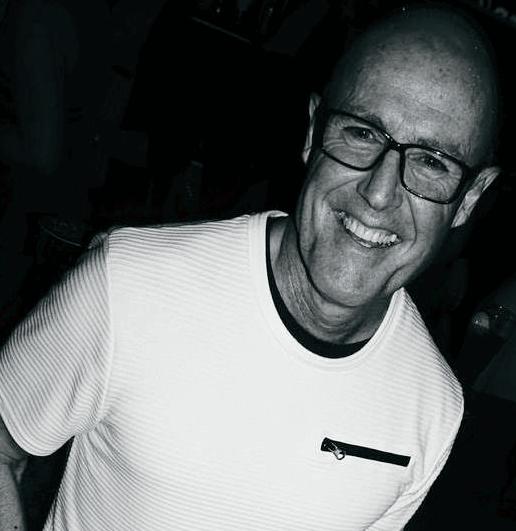
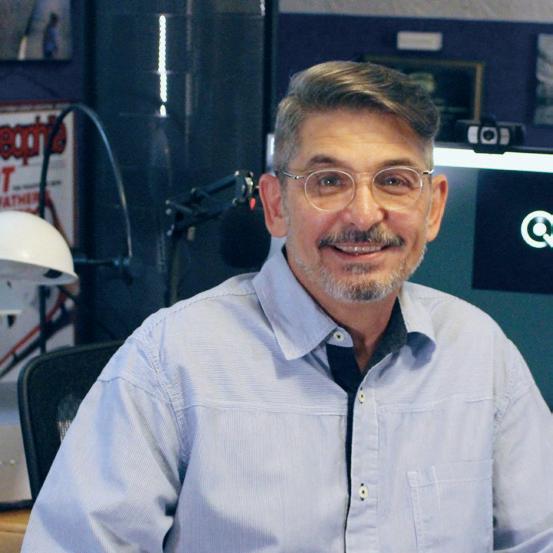




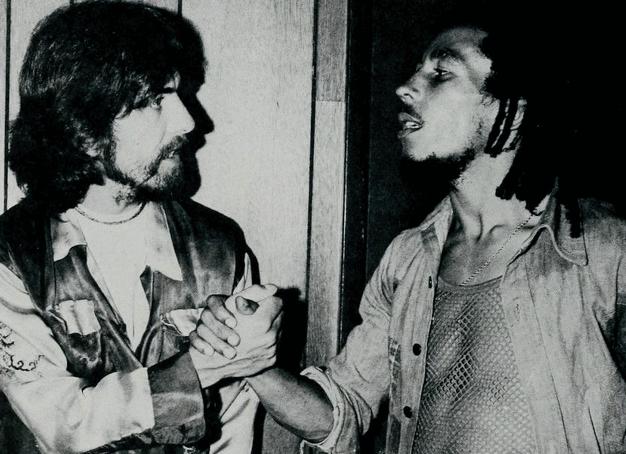 BY OLIVIER MEUNIER-PLANTE
BY OLIVIER MEUNIER-PLANTE
On July 13th, 1975, the Roxy Theatre in Los Angeles was electrified by the sounds of Bob Marley & The Wailers as part of their “Natty Dread” tour. Amidst the crowd of fans was a familiar face, George Harrison, the Beatle known for his mastery of the slide guitar.
As word reached Marley that Harrison was in the audience, the excitement was undeniable. “Ras Beatle!” Marley exclaimed.
The atmosphere backstage was charged, an iconic moment in the making. Photographer Kim Gottlieb-Walker was there to capture the encounter, but faced a challenge: “I had a flash on my camera and the batteries were dying — they were only together for two minutes and you had to wait 30 seconds to get a charge. It was agonizing. But I got the picture in the end and that’s all that matters,” she shared with the Hempstead Highgate Express.
The photograph captured a mutual respect that was as undeniable as it was fleeting. Harrison had recently returned from L.A., where he had seen Bob Marley & The Wailers perform at the Roxy three times. He was struck by Marley’s performance, sharing with Melody Maker, “Best thing I’ve seen in ten years. Marley reminds me so much of Dylan in the early days, playing guitar as if he’s new to it. And his rhythm, you know, it’s so simple, yet so beautiful. I could watch The Wailers all night.”

The admiration was reciprocated by Marley, who had covered The Beatles’ song “And I Love Her.” In an interview featured in the book Rock Lives, Marley spoke of his encounter with The Beatles: “The thing was we meet and shake hand and say great — them dude they nice. I really like meet them all and sit down and chat with them. They’re bredrens… just love roots.
Two musical worlds collided on that unforgettable night, and a moment of shared respect was immortalized. From Marley’s perspective, The Beatles were like reggae royalty – kings and queens of roots music. As for Harrison, Marley’s rhythms resonated with him deeply, evoking memories of the early days of rock and roll. Their brief meeting at the Roxy Theatre was a testament to the unifying power of music and the mutual admiration between two legends.
collided on that unforgettable night, and a moment of shared respect was immortalized.
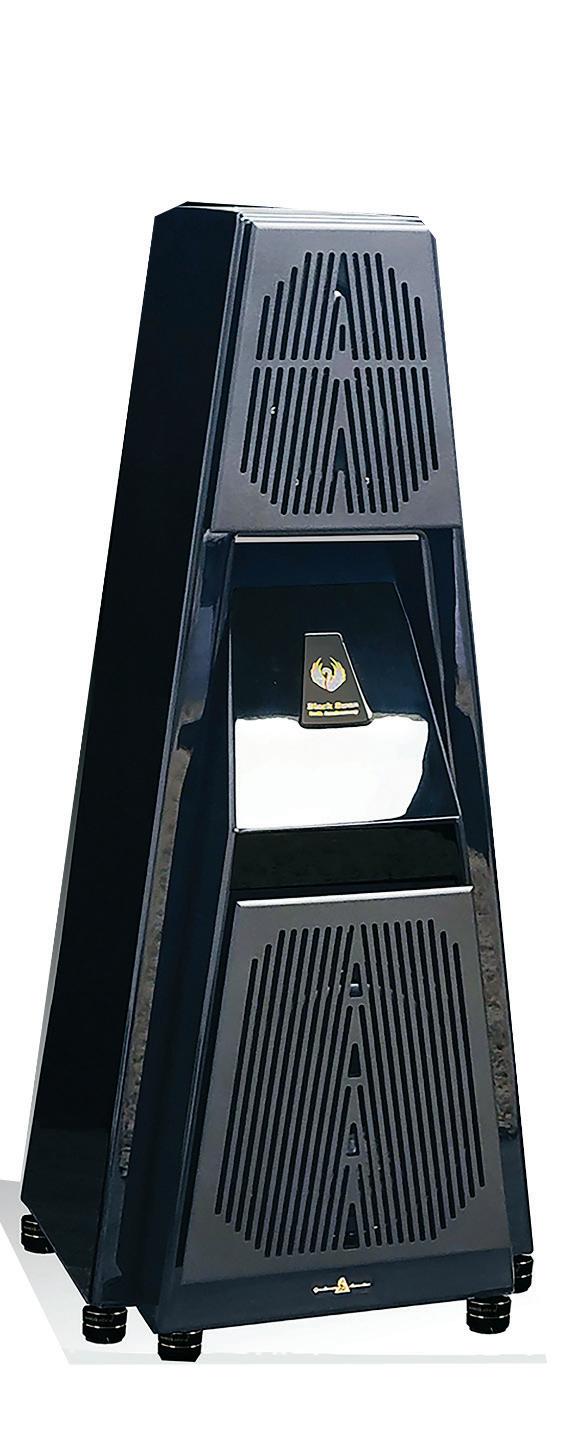


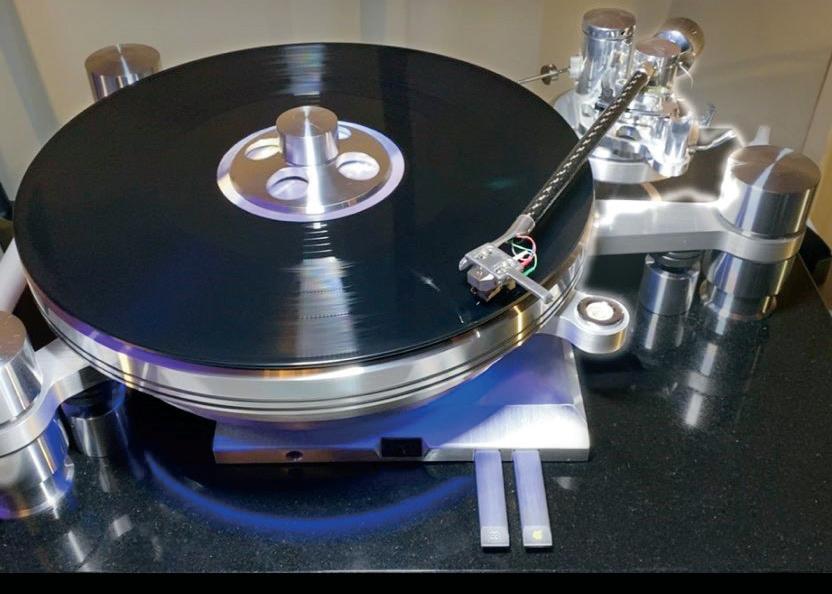

It was early Sunday morning when I met veteran audio critic Michael Fremer, aka Mikey, suitcase in hand, preparing to return home from his visit to the Montreal Audiofest. He’d been invited by the show’s organisers to present his popular turntable setup seminar along with the show’s annual Lifetime Achievement Awards, conferred on those who’ve made significant contributions to the audio industry. What Mikey didn’t expect was that he himself would be bestowed the award in recognition of his decades-long contributions to audio reviewing and his unwavering championing of vinyl playback.
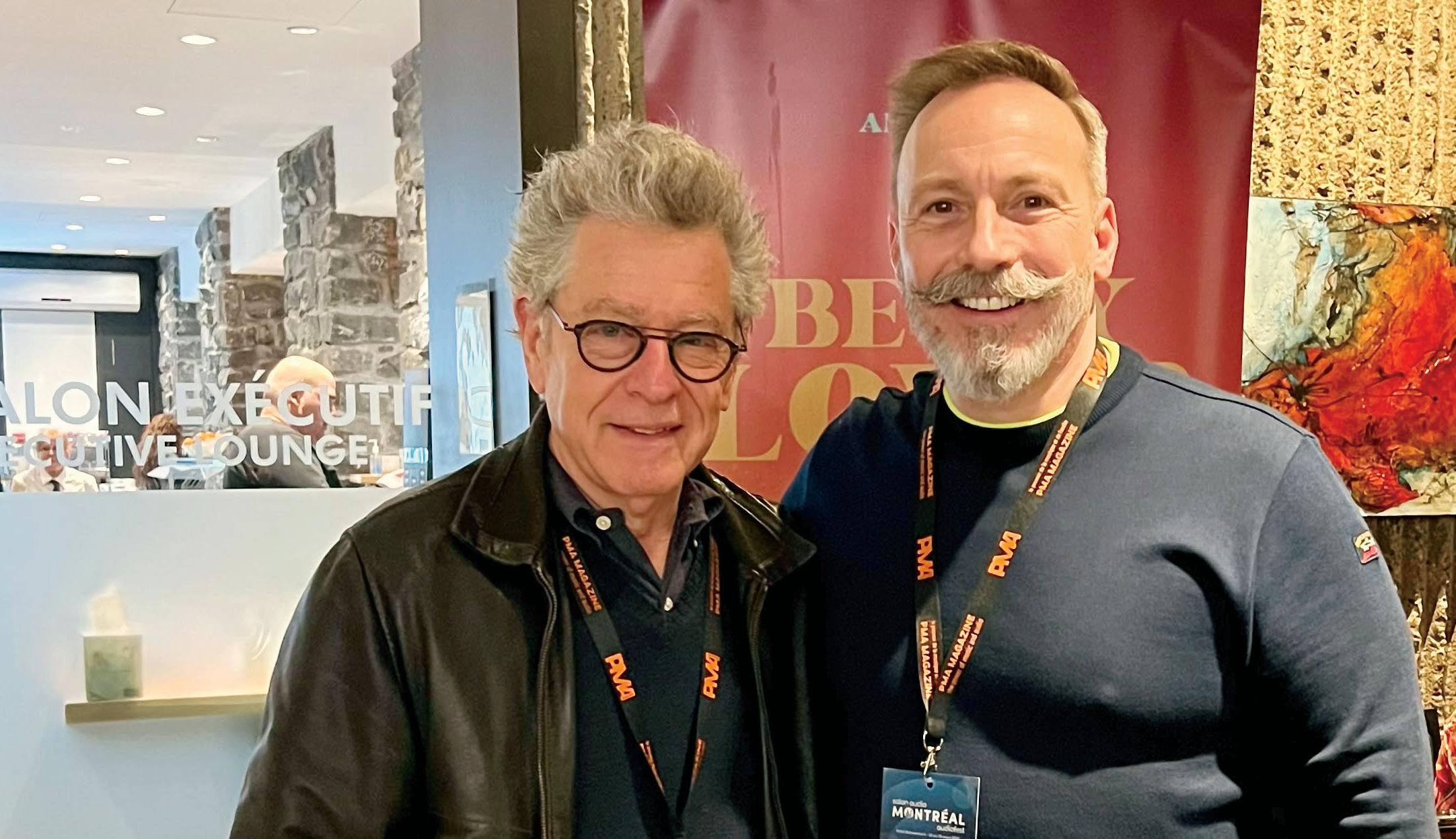
“That was totally out of the blue. I had no idea that was happening,”
Mikey says after I congratulate him on his win.
“They kind of ambushed me.”
In this exclusive interview with PMA Magazine’s Gilles Laferriere, Mikey speaks frankly—with the opinionated eye of a critic, but at times poignantly— about a variety of things he feels compelled to get off his chest, including how Audiofest exhibitors should up their game, the importance of manufacturer longevity, and his return to The Absolute Sound following his split from Stereophile.
I ask Mikey why he’s never been to the Montreal Audiofest, now in its 34th edition, until now.
“It’s right around my birthday and my wife insists that I stay home for my birthday,” he says. “This year was special, so I came. And it’s fun. It’s a great show. The people, the hotel, everything about it is great. I really had a good time, and the gala last night was insane! In America, in half the states, having an event with a Drag Queen on stage would be illegal. It’s pathetic.
“The vibe here is lower key, and everybody’s happier. It’s very tough right now in the US. The country is split apart in a very bad way. And it’s not just political. It’s split apart because half the people have different sets of facts. They don’t believe things. What happened on January 6—a lot of people don’t think it happened.
“And a lot of people in power who know better are just playing it out. I’ve never seen anything like it. But anyway, the hi-fi is good.”
His vote for best audio show in the world?
“High End Munich is something unto itself. There’s really nothing like it, because when you go there in the spring, that’s when business happens for the whole industry. And you really see that it’s a large-scale industry. You see big businesses there year after year—the same big companies. They’re surviving. They’re building products, they’re selling and distributing all over the world.
“And the show is open for consumers, too, which is really interesting. Consumers get to see the business side of it, which I think gives them a certain sense of confidence that if they invest in a product, the chances are it’ll be supported over the years. And that’s something I think consumers have to take into account—a company’s longevity. Consider what kind of investment you’re making. What are you going to have in five years if that company’s gone?
“There are a lot of mom-and-pop businesses at the smaller regional shows in the States, and it becomes a point of contention for the bigger stores that invest and come there and show their gear. They say to themselves, ‘why am I supporting this show? I’m allowing these little guys to come in and steal my business and sell out the back door and not pay sales tax and I lose business and I’m paying for it.’ That tension is coming to a head this year. I think a lot of the big stores that would normally exhibit at AXPONA are not coming for that reason. And AXPONA can’t not have these little stores.
These little dealers and little manufacturers are their bread and butter. It’s going to be an issue that’s going to get worse over time.
“Another fantastic show is the one in Warsaw. The Poles are music lovers. Their airport is called Frederick Chopin. In America, if you named an airport for Frederick Chopin, you know what people would say? Hey, who’s this chopping guy? What is he chopping? Is his blade sharp?”
What did he think about the Hong Kong show?
“A great show. Also on a whole different level, with a focus on classical music and frequented by serious music lovers. But for political reasons, I won’t attend it anymore. If I say the wrong thing, I could get arrested, and I often say the wrong thing. Maybe I’ll go back one day, we’ll see.”
“As a critic, I noticed a lot wrong with the way exhibitors showed their products,” he says. “There should be better lighting. Signage was terrible. If you have people coming into your room, there should be a sign next to each product. It doesn’t have to be detailed, but here’s the name of it, the brand, here’s what it does, here’s what it costs.
“And each room should have a component sheet. Okay, it’s important for me, as a reviewer, to have one, but there should be one for the consumer, too. Their head is going to spin from this show, so they should be able to go home and go, ‘oh yeah, there was this, and this, and here’s what it costs. Now I remember that room.’
“And when I walk into a room, and I see whoever’s manning the room just staring at their cell phone or computer, not engaging with visitors, that’s not good. I walked into a big room of a company that invited me there in an email. I walked in and was taking pictures, obviously not just a guy sitting down. And the guy that was at the computer looked up and saw me and looked back down, ignoring me. So, I went through the whole room with video, and then I walked out. I’m not trying to say I’m somebody special, but they invited me into this room. I don’t want to have to go, ‘hey, I’m here’. But this guy just sat there at his computer.
“Exhibitors should engage every visitor. And they don’t do it. They’re paying all this money to come here, and they don’t take advantage of their opportunity.”
What about the sound of the rooms in general?
“Hotel rooms are notoriously bad,” he said. “Some people can get good sound in a hotel room. That’s a miracle. If the exhibitor got good sound in a tiny little boxy room, good for them. But it’s why I don’t review equipment under show conditions.”
“2022 was an eventful year in your career,” I say.
“But I had to leave TAS because it was kind of going under at that point. By then, I had made enemies of everybody at Stereophile because I was such a bulldog for Harry and TAS and the culture the magazine represented, which I felt Stereophile didn’t have, even though it was a good magazine. But I had to leave, and John Atkinson was kind enough to give me the opportunity to write for his magazine when he could have easily said no.”
Not everyone at team Stereophile was thrilled about Mikey’s arrival. “I went to one of Stereophile’s annual CES-type parties, when (late magazine advertising executive) Ken Nelson, who walked with a cane, used his cane to block my entrance and said, ‘You’re not coming in here, Mikey, you’re an enemy.’ Wow, okay. I don’t mind making enemies. If you’re afraid of making enemies, don’t be a critic, be a publicist.
“So, John asked me what I wanted to write, and I said an analogue column, to which he replied that I’d be writing myself out of a column because analogue was going to go away in a couple of years. I said if analogue goes away, I’ll change jobs. John accepted and asked how much I wanted to be paid for it. I gave him a price, which wasn’t a lot of money—I’ve consistently, in my life, undervalued myself, which is a self esteem issue that I’ll deal with in my older age.
Do you want to tell us what happened?
“Sure. (in 1986) I started my career at The Absolute Sound (TAS), where I was the music editor. I got to review a few pieces of equipment, but not much. Harry Pearson mentored me. The first piece of equipment I reviewed was a pair of speakers. I wrote the review and mailed it to Harry, who sent it back with “no, no, no” written all over it in red pencil. I had to rework the review six times before it was publishable. When it was, the speaker company was out of business! (laughs) I learned so much just by reading the magazine.
“Six months later, Larry Archibald, who co-owned the magazine with John, contacted me to say they were doubling my pay. They saw the result of what I was bringing to the magazine, which I didn’t but they did. For that, I’ll forever be grateful to John and Larry.
“At some point, I saw my career ascending and people paying attention to me. I’d come to these shows and people wanted to take pictures with me and they thanked me and it was a fantastic feeling. I never thought my work would become that kind of thing. Things were going well, but eventually I needed more money and they didn’t have more for me.
“So, while I was still writing for Stereophile, (in 1995)
“Yes. I left Stereophile and returned to The Absolute Sound.”
I started my own print magazine, The Tracking Angle, which ran for four years. It was difficult because we couldn’t get advertising. We were promoting a physical medium just when the record industry consolidated and didn’t care about that anymore. I lost some money, but it was worth it considering what I did and because I had all that content I could put online. I started my own website, musicangle.com, and was growing that while Stereophile was getting sold repeatedly. The owners at Stereophile, those before the current ones, told me they weren’t happy that I had a website, because I was diluting my brand. I said ‘yeah, I’m diluting my brand, and I’m growing my bank account, which is a fair trade to me.
“They then made me an offer to become an employee. I’d never been an employee. Even when I supervised the (movie) soundtrack to Tron for Disney, I was always an independent contractor.
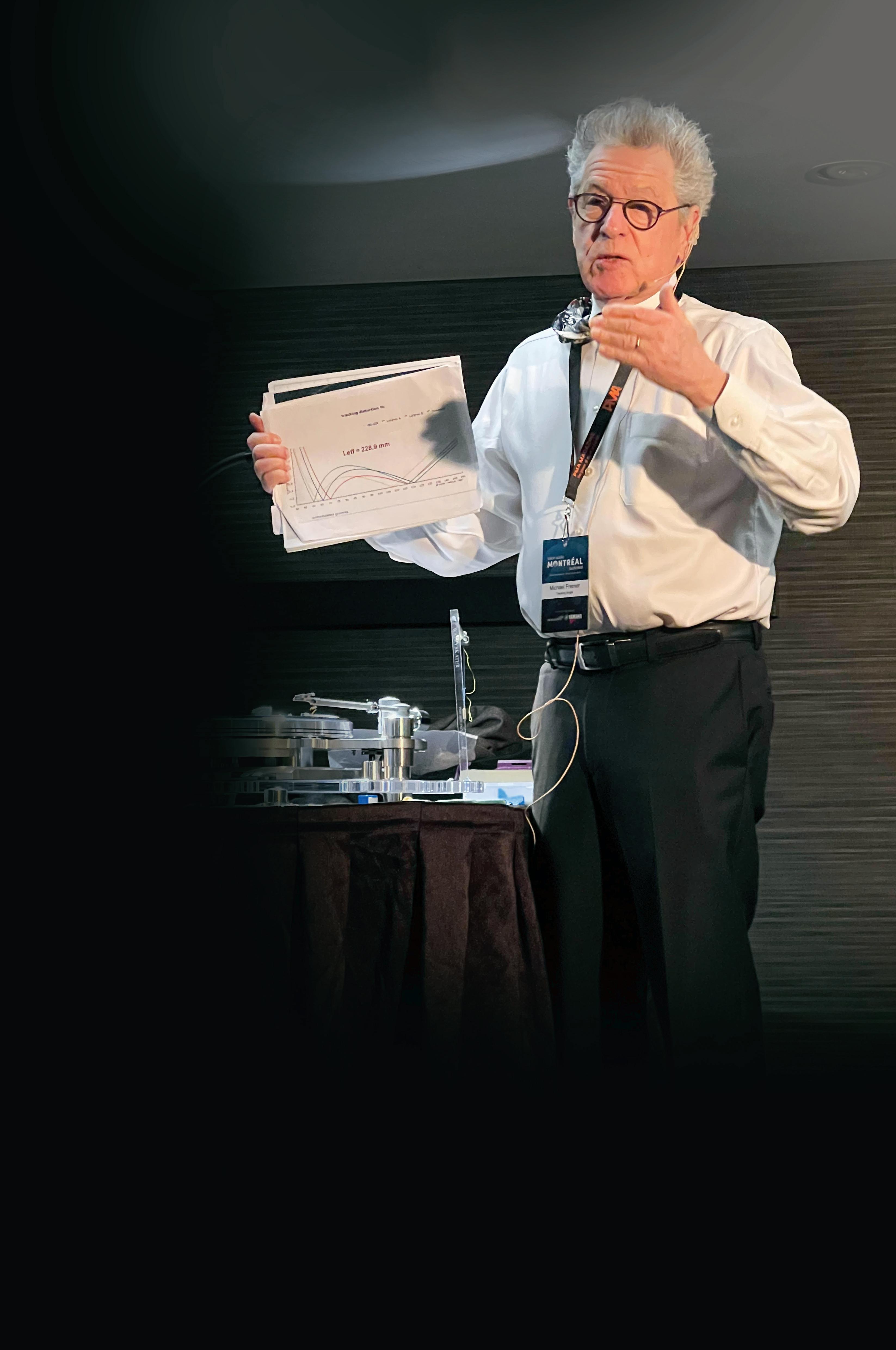
“And over the ten years I was a paid employee, I continued building my brand. I built a website (analogplanet.com) from scratch. I named it, I got the writers, I did the whole thing. I built a YouTube channel. I wasn’t hired to do a YouTube channel, but I thought that’s something you have to do today. I built it up to 52,000 subscribers when Stereophile’s YouTube channel had 3000 to 4000 subscribers."
“I always put in the extra effort. Always. It was good for the magazine and I felt entitled to more money. But the new owner said no, I was too expensive. So that’s what happened.”
Michael then hesitates and gets visibly choked up. After taking a moment to collect himself, he clears his throat and continues.
Scan the QR code to read the rest of the interview:

I ALWAYS PUT IN THE EXTRA EFFORT. ALWAYS



The true sound is out there
